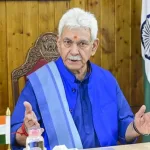Dr. FIRDOUS AHMAD MALIK | AAMIR AHMAD TEELI
On 1st Feb. 2024, Finance Minister Nirmala Sitharaman made history by presenting her sixth consecutive budget, matching the record set by former Prime Minister Morarji Desai. This significant milestone occurred just ahead of the Parliamentary elections. Finance Minister Nirmala Sitharaman presented the Interim Budget 2024-25 in Parliament, revealing crucial details about the fiscal landscape for the upcoming year. Finance minister mentioned that 25 crore people have been lifted out of multi-dimensional poverty in the last 10 years.
The government has shifted its approach to poverty alleviation, focusing on transparency and ensuring that benefits reach all eligible citizens. The Finance Minister emphasized the government’s commitment to four key categories the poor, women, youth, and farmers, considering them as crucial constituents in the nation’s development agenda. However the ways in which these categories of people were benefitted in the past or the ways in which they will be benefitted further in future include mostly non-economic ways, including Triple Talaq, social justice and alike ways.
Some main of highlights budget 2024-25 highlights are as:
Capital Expenditure (Capex) Outlay Increase
The substantial 11.1% increase in capital expenditure, amounting to Rs 11,11,111 lakh Cr, underscores the government’s commitment to fostering robust growth. This augmented allocation, constituting 3.4% of GDP, is poised to be a catalyst for transformative changes in the real estate sector. The infusion of funds into various infrastructural upgrades and new projects is expected to create a ripple effect, driving economic development and job creation.
Fiscal Consolidation
The government’s ambitious fiscal consolidation target for FY25, set at 5.1%, reflects a prudent fiscal policy. Surpassing expectations, the fiscal deficit for FY24 stood at 5.8%, beating the targeted 5.9%. The reduced gross borrowing estimate of Rs 14.13 trillion for FY25 signals a strategic move towards fiscal responsibility. This disciplined approach aims to create a stable economic environment and instill confidence among investors and stakeholders.
Initiatives for Middle-Class
While the budget may not have offered extensive provisions for the middle class, the introduction of a new housing scheme represents a significant step towards addressing housing challenges. This initiative is specifically designed to support middle-class individuals residing in rented houses, slums, and unauthorized colonies, facilitating their journey towards homeownership. The withdrawal of outstanding disputed tax demands benefits around 1 crore taxpayers, aligning with the government’s commitment to ease of doing business.
Healthcare Initiatives
The expansion of medical colleges using existing infrastructure showcases a pragmatic approach to bolstering the healthcare sector. The extension of the Ayushman Bharat scheme to cover ASHA workers, Anganwadi workers, and helpers is a commendable move toward ensuring comprehensive health coverage for frontline health workers. This holistic strategy not only addresses current health challenges but also lays the groundwork for a resilient healthcare system.
Agricultural Focus
The sustained efforts to enhance farmers’ income are underscored by the commitment to promoting private investment in post-harvest activities. The Finance Minister’s assurance regarding periodic and appropriate increases in minimum support prices for farmers demonstrates a steadfast commitment to the welfare of the agricultural community, reinforcing their crucial role as ‘annadata.’ This focus on agriculture aligns with the broader goal of achieving food security and sustainable rural development.
Concluding, the Interim Budget 2024-25 focuses on fiscal discipline, indigenous agricultural development, healthcare expansion, robust capital formation & infrastructure development and housing initiatives for the middle class. The government aims to stimulate economic growth through strategic investments and tax-related measures, providing a glimpse into its financial roadmap for the coming fiscal year. The government expressed its vision to transform India into a developed nation by 2047, outlining a comprehensive strategy for sustainable economic growth and social development.
(Dr. Firdous Ahmad Malik is Assistant Professor, University of People, United States of America. Email: [email protected]. And Aamir Ahmad Teeli is Research Scholar (Economics) Central university of Tamil Nadu. Email: [email protected])





